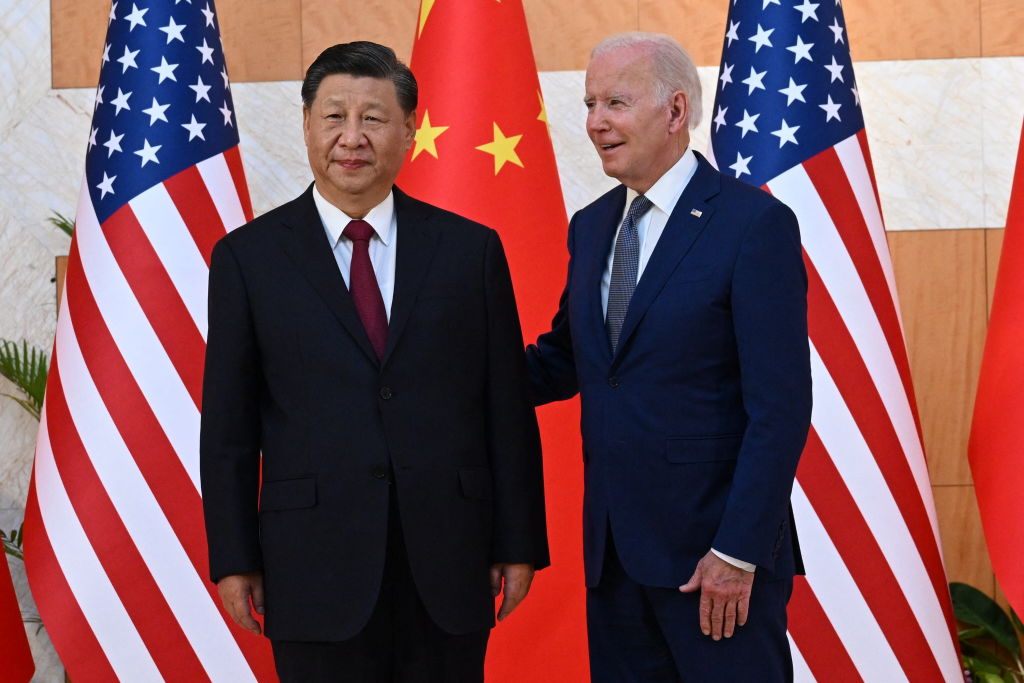Contrary to the conventional wisdom, the world situation is grim for America. And it could actually get far worse. Why, then, are many of our national leaders acting as if things are going well? We need not doubling down but fundamental change. That starts with understanding that we are in serious trouble.
The war in Ukraine, which is manifestly the Biden administration’s priority, is sadly likely to be protracted. While the Ukrainian counteroffensive is still ongoing, the best analysis indicates that the war has become a struggle of attrition. Russia is substantially mobilizing its economy and society for a long-haul war effort — and its armed forces appear to have at least partially adapted from their earlier failures. At the same time, there is little to no credible evidence that Moscow is seriously interested in a peace agreement; in fact, it appears Moscow thinks it may gain an advantage if the war continues.
At the same time, Russia has become highly dependent on China, its economy integrated into Beijing’s sphere as a way of escaping Western sanctions which, while inflicting some damage, have not materially shifted Moscow’s strategic calculus, let alone compelled it to withdraw from Ukraine. We must now expect Moscow to align more fully with Beijing, even repaying Beijing by serving as a European distraction were China to move against Taiwan. As a result, Beijing has tremendous leverage over Russia and Europe that helps explain the flow of European leaders to Beijing over the past year or so.
Meantime, the United States has established itself as the leading supplier of military aid to Ukraine; the Biden administration has now set expectations that it will carry the lion’s share of supplying Ukraine “as long as it takes.” This means Washington is tied down for what looks likely to be an extended war, depleting our stocks of weapons, money and political resolve even as Europe continues to lag in its pledges to increase its own defense spending.
And American military stockpiles aren’t likely to be materially expanded soon — our defense-industrial base, despite a lot of talk, remains woefully ill-equipped for an era of renewed great power rivalry. Rectifying that deficit must be a national priority, but so far there have only been incremental moves that will take years to play out. Nor do most Americans appear to support dramatic increases in defense spending. This political reality, on top of growing fiscal concerns such as financing the debt, mean the United States is unlikely to simply spend its way out of its predicament.
This situation might be tenable if the rest of the world were going our way. But it is not.
Most importantly, a now-superpower China that sees itself locked in a profound confrontation with America continues its enormous military buildup, appearing set on a confrontational posture toward America and to be doing almost everything consistent with preparing for war with the United States. It is true that the US has stepped up its engagement with Asian countries, but the limited scale of these efforts is manifestly inadequate to address the scale of the peril posed by China. As a result, the nonpartisan RAND Corporation recently judged that the military balance in Asia “leaves open the possibility of a rapid victory by China” against a US defense of Taiwan, assessing that “neither today’s [US] force nor forces currently programmed appear to have the capabilities needed to confidently execute” a successful defense.
Whether this is really a grave problem comes down to whether China is seriously contemplating a war with America. If Beijing’s military buildup were all for show, Washington’s progress with allies, its economic measures to “de-risk” from China and its efforts to tone things down with Beijing would have time and space to play out. In such a world, half-measures might do.
But an increasingly wide range of indicators suggests that China’s preparations are not just for show. Beijing is actively exercising its forces to redress remaining deficiencies in the PLA’s abilities; building up its nuclear arsenal; attempting to sanction-proof its economy; deepening ties with countries like Russia, North Korea and Iran that could help it in a conflict and strengthening political control at home. Indeed, Xi Jinping regularly admonishes his forces to be ready for an “actual war.” No one knows if or when Beijing might strike, but it certainly seems like it’s genuinely preparing to do so. If it looks, walks and sounds like a duck, maybe it’s a duck?
Nor should we forget that North Korea appears to be, for all intents and purposes, a nuclear-armed state with long-range missiles that can hit the United States, undermining the basis of Washington’s longtime deterrent commitment to Seoul. In the Middle East, Iran appears to be moving closer to a nuclear capability. And, although it’s much attenuated, the threat of transnational jihadi terrorism has not disappeared.
While Washington is tied down supporting a long war in Europe, China is readying for war and is increasingly well-positioned for one. Certainly politicians in recent years have overhyped warnings of danger since time immemorial; after a period when it’s used a great deal it loses much of its potency. But the fact is that the coming years are probably the most dangerous time for Americans in generations. We face the real possibility of a great power war — and might well lose one for the first time, with disastrous repercussions.
There is a foreign policy strategy to manage this much more dangerous era, one proceeding from a sober-minded focus on our core national interests and prioritizing dealing with our prime great power rival, China. But the beginning of wisdom is recognizing that we are heading in a gravely dangerous direction. And we are.
This article was originally published in The Spectator’s October 2023 World edition.

























